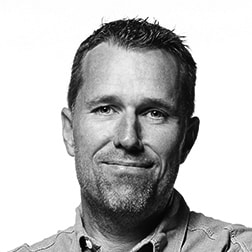In the book “I understand in English more or less – on the anglicisation of Swedish higher education”, (På engelska förstår jag ungefär – om anglifieringen av svensk högre utbildning ), Ola Håkansson, a publisher, and Peter Svensson, a docent of business administration in Lund, attack what they consider to be the overuse of English at Swedish higher education institutions, both in teaching and in course literature.
“There are many reasons why English has become so dominant in higher education,” says Svensson, “but the thesis we are championing is that when you make decisions about which language to teach in, and which language the course literature will be in, they should be made first and foremost based on an important rationale, namely the students’ scope for learning. The students’ learning deteriorates radically if teaching is in English compared with teaching in their first language.”
“The consequence is that the students learn less, they understand less and in the long run it contributes to a systematic production of incompetence,” adds Håkansson.

Peter Svensson
Docent of busieness administration at Lund University
How do you know that?
“All the research we have looked at points in the same direction. That both the ability of teachers and the ability of students are reduced significantly when the teaching is in their second language,” says Svensson.
Is there any research that points in the other direction?
“No, there is no research that shows that teaching in English is as good or better, but there are studies that say it is a complex issue and that there is no clear answer. However, there is no research that does not problematise the choice of language, and we have assessed almost all the research that has been done in Denmark, in Norway, in Europe and several large studies from Asia,” says Håkansson.

Ola Håkansson
Publisher
What do you think should be done about it?
“Well, the first point is to treat language policy and language choice as a core issue within each subject area,” says Håkansson. “Our second point is that Swedish should almost be the default language at first-cycle levels, that is for the first three years.”
“And the third point is that we think the status of research and publications in Swedish should be upgraded,” adds Svensson. “This is also about linking research to education. That is much easier if the text is written in Swedish, especially if your teaching is based on your own research.”
However, they do not object to internationalisation and the use English at second-cycle level. “We think that master’s courses should be in English, because that is completely in line with the Bologna model and necessary for international exchange of students,” says Ola Håkansson.

















